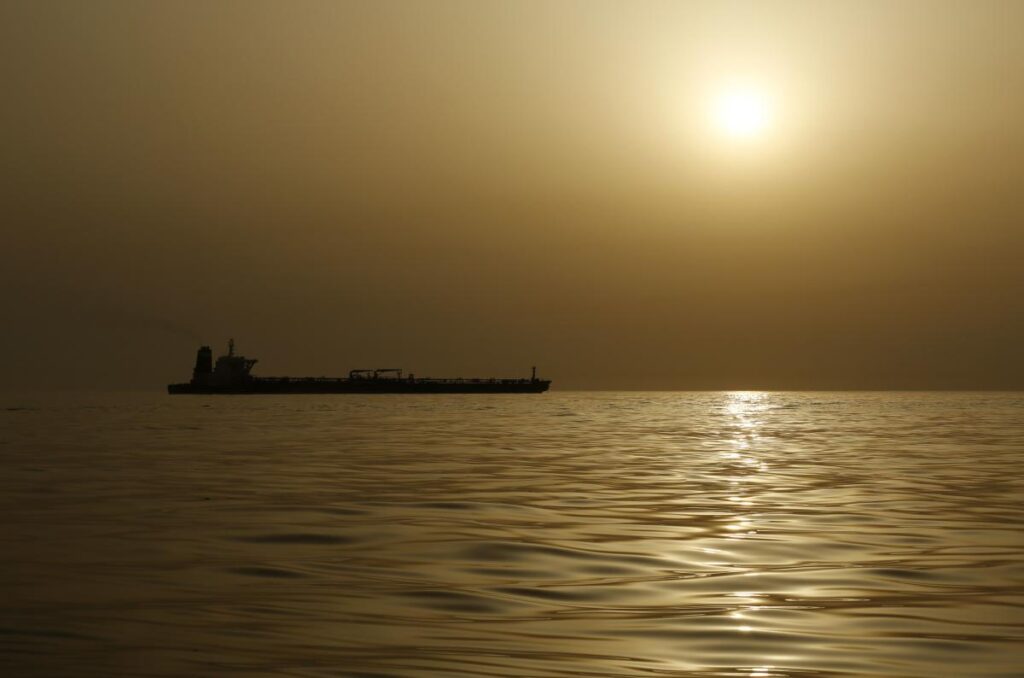(Bloomberg) — The US broadened the scope of its sanctions on Iran’s oil and gas sectors in response to a ballistic-missile attack on Israel, ramping up economic pressure on Tehran ahead of Israeli retaliation that’s expected any day.
Most Read from Bloomberg
Under the action announced Friday, the Treasury Department invoked a Trump administration-era executive order that allowed for sanctions on any area of the Iranian economy to deny it funding to finance malign activity. Friday’s move essentially declares the country’s petroleum and petrochemical sector off-limits, allowing for sanctions on anyone linked to it.
Looming over the announcement Friday is the attack Israel is expected to launch on Iran at any time in retaliation for a ballistic-missile barrage that struck but caused limited damage to Israeli targets on Oct. 1. The US has pressed Israel not to target Iran’s energy sector or nuclear sites for fear of escalation and of global economic fallout.
Instead, US officials offered to impose fresh economic sanctions, people familiar with the matter have said, and Friday’s action may be the result.
The new sanctions allow the US “to more effectively target Iran’s energy trade,” National Security Advisor Jake Sullivan said in a statement. Also sanctioned were 17 ships and 10 entities linked to the fleet of tankers that ship Iranian oil, including to China.
In a separate statement, the Treasury Department said the move allows it to “impose sanctions on any person determined to operate in the petroleum and petrochemical sectors of the Iranian economy.”
Late Thursday, Israel’s Security Cabinet met to discuss its potential action against Iran but was unable to come to a decision on what to do, according to an Israeli official. It’s unclear if there are divisions within Prime Minister Benjamin Netanyahu’s coalition government or if it’s biding its time.
Earlier: Looming Israeli Strike on Iran Offers Fresh Test of US Sway
The ships and companies sanctioned Friday are based in Hong Kong, the United Arab Emirates, Malaysia and elsewhere. Chinese purchases of Iranian oil have surged since 2021, according to an analysis by the Energy Information Administration.
“I see this as a modest escalation and broadening of scope but not yet a game-changer,” Rachel Ziemba, a senior fellow at the Center for a New American Security said in a text message. “By threatening to do more, I think they hope Chinese buyers will become more wary. I’m not convinced yet given the deep illicit nature of payments.”
The vast majority of Iran’s oil exports go to China, which has shown little willingness to abide by US sanctions.
The move is only the latest in a series of attempts dating back to former President Donald Trump’s administration to choke off Iran’s ability to fund proxy militias, including Hamas and Hezbollah, and its ballistic-missile program. In 2020, when Trump signed the original executive order cited in Friday’s decision, it was hailed as a major step to strangle the country’s finances.
But Iran has continued to build out its ballistic-missile program — as it showed with the Oct. 1 barrage — as well as funding proxy groups that are labeled terrorist organizations by the US and the European Union. Hamas’s attack on Israel on Oct. 7 of last year touched off an Israeli campaign that has killed some 42,000 people in the Gaza Strip, according to the Hamas-run health authority in Gaza.
Israel also has stepped up attacks on Hezbollah in Lebanon in recent weeks, killing Hassan Nasrallah and many of the group’s other senior leaders.
(Updates with details of sanctions, analyst and official comment starting in fifth paragraph.)
Most Read from Bloomberg Businessweek
©2024 Bloomberg L.P.
Read the full article here


